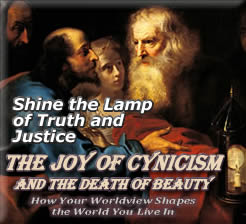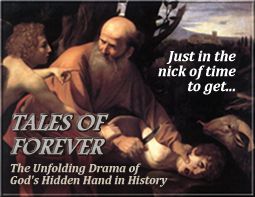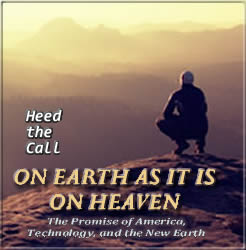Arguments for Authenticity
Unleashing Latent Truths
“What is truth?” asked Pontius Pilate of his supplicant prisoner; and in doing so, he was essentially asking this question on behalf of all humanity. But according to the canonical record, Jesus offered no reply to Pilate. So why did He not answer him? If God is no respecter of persons, as the Scriptures assure us, then the One Who was to give His life as a ransom for mankind would certainly have answered such an important question. After all, Jesus stated that this was the very reason He came into the world: “To testify to the truth.”1 Yet based on the Apostle John’s account, Jesus was inexplicably silent as to the exact nature of this truth.
Fortunately, for us, though, John was not the only person who recorded the events surrounding this pivotal moment in history. As it turns out, there is another take on this same conversation, which can be found in the apocryphal record known as The Gospel of Nicodemus, formerly called The Acts of Pontius Pilate. According to this version of the story, Jesus did answer the question.
So Pilate asked, “What is truth?” And Jesus replied, “Truth is from Heaven.” To which the somewhat disappointed Pilate followed up with another question. “Then truth is not of this Earth, is it?” But Jesus looked the governor squarely in the eye and replied, “Don’t be too sure, my friend, because truth does exist on this Earth, but it does so among those who, having the power of judgment, are governed by the truth and who form proper judgment because of that truth.”2
Confronted by such an alternate version, one must then ask the obvious question. Which version of this story should be accepted as the truth? To which I would reply: Maybe they are both true. After all, as we already noted concerning the divergent accounts of Noah’s animals and Judas’ demise, history is not made up of only one version of the life of any historical character. So why should we expect there to be only one version of this event in the life of Jesus?
Story Continues Below
Says Richard Price—the founder and CEO of Academia.edu—on his podcast In Depth With Academia:
Tales of Forever: The Unfolding Drama of God’s Hidden Hand in History is:
To hear Price’s book review of Tales of Forever, CLICK HERE.
To hear Kent talk about the little-known biblical prophecy, which speaks of the 5,500-year chronology from Adam to Christ, with Zen Garcia, the host of the Internet talk show Secrets Revealed, CLICK BELOW.
Story Continues From Above
It is questions such as these, in fact, that bring us face to face with the central issue encountered by anyone who reads a book like Tales of Forever, because it is a book that incorporates, at its core, stories that have all been stitched together from the so-called “apocryphal” record—in particular, The First Book of Adam and Eve, The Secrets of Enoch, The Book of Jasher, The Letters of Herod and Pilate, and The Gospel of Nicodemus. Boiled down to its most central concern, however, there is but one question to ask: How, exactly, should one approach the question of what constitutes scriptural truth? Even Jesus was someone Who clearly taught that truth was not the same thing to each and every person. According to Him, the whole world can be divided into four distinctly separate camps. Each group, when confronted by the truth, will uniquely interpret this information based on their own personal frame of reference. Though the truth that they are receiving is singularly expressed, it will, by virtue of these four different perspectives, be understood as if they were four completely unique versions of the same truth.3
With this four-fold aspect of knowledge in mind, I would now like to address why I have become convinced of the authenticity of the books that all but the ancient world—while in the case of The Gospel of Nicodemus, the pre-Reformation world—have deemed apocryphal. The various reasons for this belief stem from the following: First, in an etymological meaning revealed in the very word apocryphal; second, in the prophetic nature of the biblical record itself; third, in the internal logic of the books which comprise the apocryphal record; and fourth, in the striking relation with which those books correspond with the Canon of Scripture.
Via this four-fold approach, we intend to demonstrate that these apocryphal accounts, contrary to popular opinion, exist in perfect harmony with the canonical record, and as such they are better able to integrate points of fact that the canonical record have until now merely alluded to in a peripheral fashion. As a result, it is our hope that biblical history might free itself from its centuries-long struggle in wrestling with this once upon a time forbidden knowledge, and finally learn to view this body of wisdom not as some offshoot of heretical literature, but as the ultimate key to unleashing latent truths, which are even now lying about like so many scattered jewels, hidden in plain sight.








